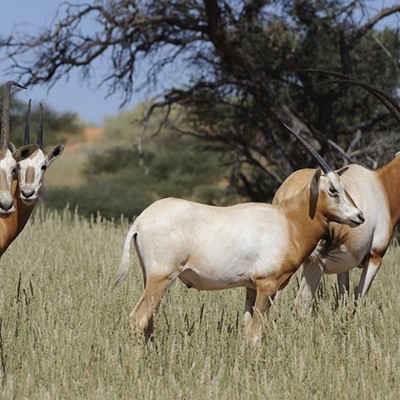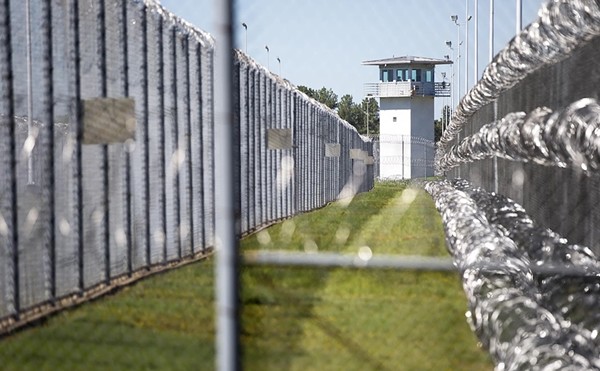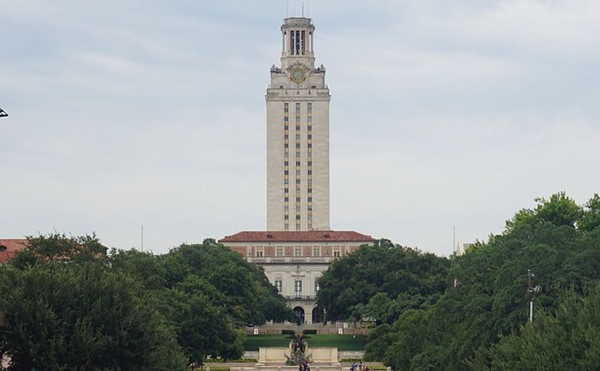
Last week, the Texas Biomedical Research Institute announced that the National Institutes of Health had awarded its Southwest National Primate Research Center more than $40 million “to continue research programs using nonhuman primates” through 2021. That’s despite a federal inspection report just earlier this year that cited the center in the death of an infant baboon and the injury of another female baboon. The center was also cited for improper euthanasia methods, exceeding animal use limits for two projects, and filing incomplete reports with the USDA.
Allegations of animal mistreatment have plagued the research center for years (though you wouldn’t know that from reading the Rivard Report). In 2006, the center was cited for an incident in which veterinarians performed a necropsy on a baboon they didn’t know was still alive. Another USDA inspection in 2011 revealed incidents like a monkey escaping and dying of hypothermia during winter and baboons slipping their enclosures and injuring employees.
Animal welfare groups like the Humane Society of the United States have long argued there’s little incentive for labs like Southwest to clean up their act because the feds issue paltry fines for violations that appear to have no impact on the awarding of multi million-dollar research grants. As the Houston Press has reported, in 2011 the feds fined Southwest about $26,000 for three violations; that same year, the research center won a five-year $19 million NIH grant just for chimpanzee research alone.
The most recent violations cited in the USDA report earlier this year seem to underscore lingering problems the Humane Society noted in an undercover investigation in 2014. After a five-week investigation, an HSUS employee, who worked as an animal caretaker at the lab, claimed to have seen monkeys pulling out their hair, mothers separated from but housed near their infants (resulting in “constant cries from the infants and significant stress to the mothers”), and “stressed and underfed” baboons that had taken to eating rocks and feces. HSUS also alleged “extensive fighting" within groups of primates resulting in serious injuries.
The USDA then followed up with its own investigation and issued two citations against the lab. One was for a young male baboon who was “emaciated at the time of death and had multiple scabs from bite wounds on the body and a large abscess on the leg and ankle.” According to the June 2014 inspection report, the baboon was healthy before he was thrown into a new enclosure with “a large number of male baboons” three weeks before his death. Months later, according to another USDA inspection report, another juvenile baboon at the center was crushed to death by a cage door.
Texas Biomedical Research Institute spokeswoman Lisa Cruz told us the lab continues to look for ways to “enhance our facilities” for the sake of both animals at the center and the quality of the research programs there. “We work closely with regulatory agencies to determine best practices, and the Center has a long-standing commitment and track record of treating its animals humanely and with the highest regard for their well-being,” Cruz said. “That’s primary to having the NIH grant renewed.”
Still, Jennifer Ball, a senior program manager for animal research issues at HSUS, told the Current she’s “disappointed” the feds continue to fund a center that as recently as January 2016 was accused of multiple animal welfare violations. “We would like to see the USDA take meaningful enforcement actions against Texas Biomed, especially given the severity and long term nature of the problems there,” she told us via email. “Just a slap on the wrist is clearly not going to fix the problems. Thus far, no enforcement actions have been taken but we are continuing to push for them.”

















